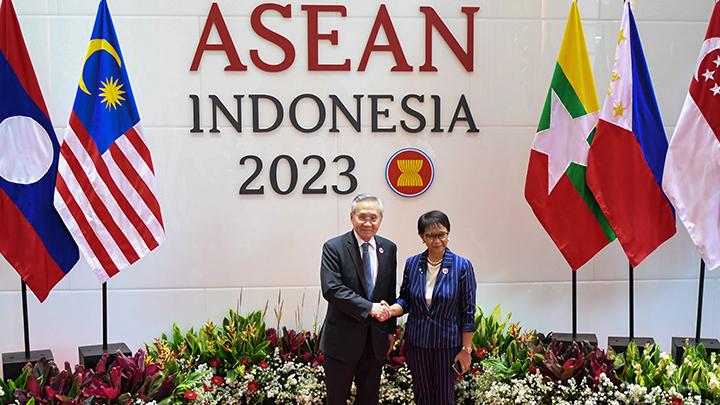The ASEAN Finance and Central Bank Deputies Meeting-Working Group (AFCDM-WG) discussed development of ASEAN Blueprint 2025 that was reflected in various working committee agendas in the ASEAN financial sector in 2022 and 2023 work plan.
“During its leadership in ASEAN, Indonesia will work with all members to review ASEAN’s financial channels to ensure ASEAN’s response to various changes and challenges,” Bank Indonesia Deputy Governor Dody Budi Waluyo said in an official statement here on Saturday.
Indonesia’s chairmanship in ASEAN 2023 is expected to encourage the bloc’s active role, offer ideas and solutions to strengthen economic recovery, and make Southeast Asia as an engine of sustainable world growth.
The series of AFCDM-WG meetings on February 6-10, 2023, in Bali initiated the 2023 ASEAN Chair on the financial line.
AFCDM-WG is a technical-level plenary meeting that discusses the results of earlier working committee meetings and various ASEAN financial sector cooperation agendas, including discussion of the Priority Economic Deliverables (PED) proposed by Indonesia.
During the meeting, Waluyo stressed the importance for ASEAN to continue the existing processes that have had an impact on the ASEAN economy while being open and able to adapt to changes to welcome the future and face challenges.
Cross-sectoral cooperation in the pillars of the ASEAN economy, including Indonesia’s PED proposal, is also expected to strengthen economic and financial cooperation to promote economic recovery and resilience in the ASEAN region in facing global uncertainties and challenges.
On the same occasion, Head of the Fiscal Policy Agency, Febrio Nathan Kacaribu, stated that financial cooperation in the ASEAN region should be managed carefully.
“The three PEDs are very useful for the ASEAN region and must be a concrete output at this meeting,” he emphasized.
PED focuses on health readiness, financial infrastructure, international taxation, inclusive financial digitalization for micro, small and medium enterprises (MSMEs), and sustainable finance.
According to Kacaribu, the five agenda items in the PED would strengthen ASEAN financial cooperation and integration in the 2025 blueprint.
Moreover, it will assist Southeast Asia in responding to global challenges and ensure common economic recovery.
Three strategic thrusts overshadowing PED in Indonesia’s leadership in the financial channel are recovery rebuilding, sustainability, and digital economy.
In the pillar of recovery rebuilding, PED encourages recovery and ensures economic and financial stability and resilience in the ASEAN region.
In the digital economy pillar, PED advances payment connectivity and promotes digital financial literacy and inclusion to support inclusive economic growth.
Meanwhile, for the pillar of sustainability, PED promotes transition finance to support sustainable finance and a green economy.
Various programs in PED are discussed through 10 working committee meetings held by the Ministry of Finance, Bank Indonesia, and the Financial Services Authority (OJK).
The results of the series of meetings will be reported and discussed at the AFCDM-Working Group meeting.
Follow-up discussions on the agenda in the series of meetings will be reported and directions will be sought at the ASEAN Finance and Central Bank Deputies Meeting at the end of March 2023.










